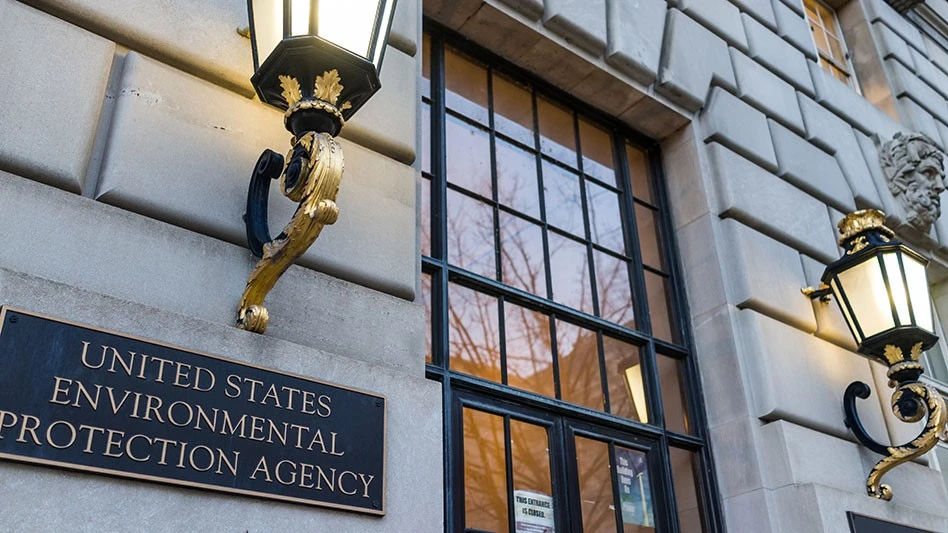
Kristina Blokhin - stock.adobe.com
The Environmental Protection Agency (EPA), Washington, has announced that it has established the Office of Environmental Justice and External Civil Rights to advance environmental justice (EJ) and civil rights.
According to the EPA, the new office will dedicate more than 200 EPA staff in EPA headquarters and across 10 regions. The office will be led by a U.S. Senate-confirmed assistant administrator that has yet to be announced.
The EPA says this new office “delivers on President Biden’s commitment to elevate these critical issues to the highest levels of the government and solidifies the agency’s commitment to delivering justice and equity for all.” Some duties the office will perform include:
- engaging with communities that have EJ concerns to understand their needs;
- managing and disbursing grants and technical assistance as needed;
- working with other EPA offices to incorporate EJ into the agency’s programs, policies and processes as allowed by law; and
- ensuring EPA funding recipients comply with applicable civil rights laws.
The EPA says the office will oversee the implementation and delivery of a $3 billion climate and EJ block grant program that was created by the Inflation Reduction Act. The office also will ensure the EPA’s implementation of other funding programs provided by the Inflation Reduction Act, Bipartisan Infrastructure Law and regular appropriations meet or exceed President Biden’s Justice40 Initiative.
“With the launch of a new national program office, we are embedding environmental justice and civil rights into the DNA of EPA and ensuring that people who’ve struggled to have their concerns addressed see action to solve the problems they’ve been facing for generations,” says EPA Administrator Michael Regan.
Regan had announced the creation of this office in late September at an event in Warren County, North Carolina, which was the site of protests that initially launched the EJ movement about 40 years ago.
“The establishment of a new office dedicated to advancing environmental justice and civil rights at EPA will ensure the lived experiences of underserved communities are central to our decision-making while supporting community-driven solutions,” says Vice President Kamala Harris.
The new EPA office’s initiatives will likely have an impact on recycling businesses, particularly those located in communities that have expressed EJ concerns.
In September, nongovernmental organizations expressed EJ concerns related to Orlando, Florida-based PureCycle Technologies’ proposed sorting facility in Winter Garden, Florida. Additionally, Southside Recycling had faced hurdles securing its final permit to begin operations in Chicago and ultimately was denied that permit in response to EJ concerns in that city.
Jon Schaefer, co-lead of Robinson+Cole’s recycling practice, says the new office shows that the federal government is serious in pushing forward with environmental justice measures. He says the impact of the new office will likely reach beyond the federal permitting process to state and local processes, as well as result in a sharp increase in funding and access to data to further EJ initiatives.
“This is a strong signal and sets up the framework for the EPA to push down their message and initiatives to the state and local levels,” he says, adding that recyclers should familiarize themselves with the EPA’s goals with this new office. “Be aware of your surroundings, and to the extent that you will be going into any permitting process, start early in that process to understand whether environmental justice factors will be involved.”
The Washington-based Institute of Scrap Recycling Industries (ISRI) says it plans to collaborate with the EPA’s new Office of Environmental Justice and External Civil Rights.
“Continued engagement with our communities to achieve mutual understanding and shared goals for the success of all is of utmost importance for ISRI and our members,” ISRI states. “It is the recycled material industry’s desire that all voices are heard, injustice is avoided and shared objectives are achieved in ways that are environmentally, economically and operationally beneficial for all.”
Latest from Construction & Demolition Recycling
- Terex Ecotec names Finlay Eastern as NA Dealer of the Year
- Takeuchi adds dealer in Georgia
- Ohio EPA helps fund C&D debris cleanup at former Crest Rubber Co. site
- QCC celebrates 50th anniversary
- Brokk named dealer for FirstGreen Industries
- Recycled steel values rise in US
- Nailed down
- Nucor to expand downstream products capacity





